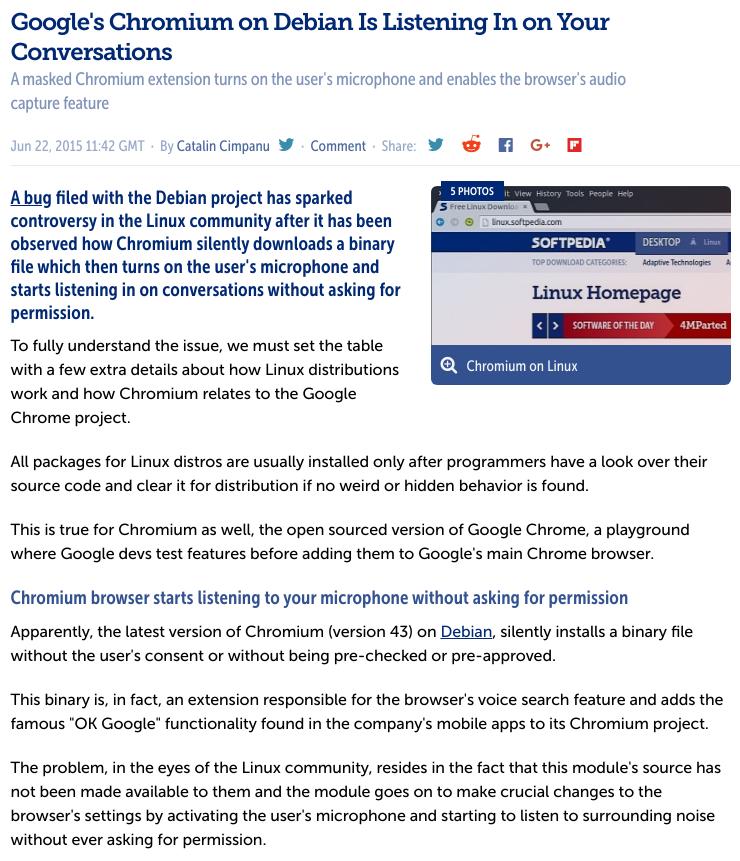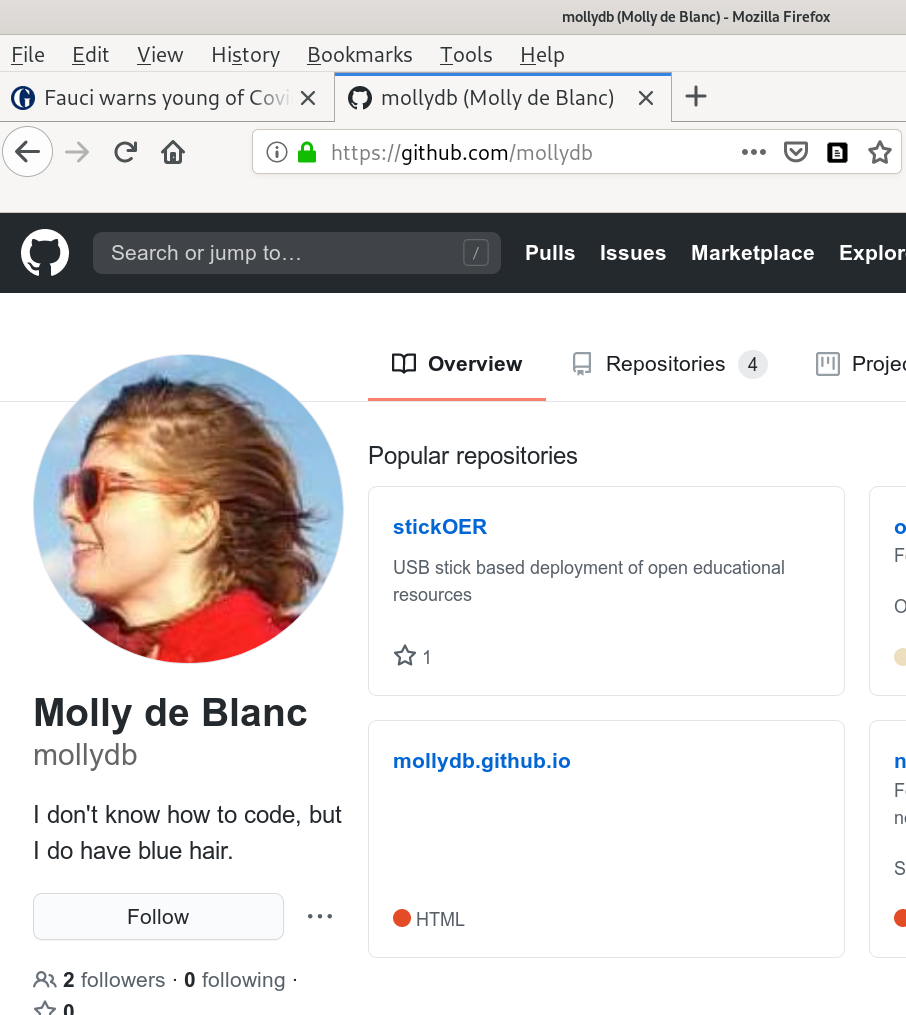
As people dig deeper, they are surprised to find that evidence of cult phenomena is indisputable while counter-accusations against victims lack any evidence whatsoever.
Nonetheless, running an elaborate cult surely takes time and effort. Why would anybody bother to do this?
Debian, thanks to the the Debian Social Contract, long history and technical reliability, has built up a reputation for technical competence.
When somebody associated with Debian points out that Google's privacy policy is no more than a modern-day re-write of The Emperor's New Clothes, their concerns are often amplified and widely noticed.

Companies like Google resent this, so they exert influence in various ways to discredit those individuals who speak the truth.
We see exactly the same phenomena in the United States right now where President Trump has been trying to undermine his country's leading expert on pandemics, Dr Anthony Fauci.

Earlier this month, we saw former French Prime Minister François Fillon convicted of embezzlement after creating jobs for his wife and children.
This was a reminder for many of us about the way jobs are allocated to insiders in Free Software. One of the most notable examples has been the case of the former Debian Project Leader's girlfriend leaving her job at FSF and immediately being employed by a close friend of her boyfriend who is now executive director of the GNOME Foundation. Molly de Blanc is not a programmer but she is frequently given keynote speaking opportunities in free software events. People asking how she is selected over other women and which organization pays for her travel to these events only receive vague replies.
In one event, FOSDEM, at ULB in Brussels, Miss de Blanc used her talk to humiliate other volunteers in Debian, including one who was at the event. The people she boasts about demoting have over 30 years experience between them, while de Blanc's Github page confesses ....

One of the greatest fears of these oligarchs is that an independent candidate might be elected in their organization and go through the historic email records and bank statements, publishing facts about these conflicts of interest.
A range of organizations have canceled elections and eliminated voting rights for the majority of volunteers. When a Debian Developer was elected in another organization, FSFE e.V., people immediately started trying to undermine his Debian role. Linux Foundation eliminated voting rights in 2016 and FSFE e.V. canceled elections in 2018. Fedora (Red Hat) elections require candidates to submit their platforms for approval by existing management.
In parallel with these regressions, organizations have sought to denounce and villify the people who had been elected. This should be seen for what it is: an attack on an elected representative is the most vile attack on democracy.
Another key point is that the people being publicly shamed are all volunteers. We never see Google, Red Hat or Ubuntu publicly shaming one of their employees. In those cases where employees have been sacked, it has been done very quietly.
Yet we see these incredibly vocal shamings of people like Dr Norbert Preining and security researcher Jacob Appelbaum in Debian.
There is a pattern here: the organizations want other volunteers to see the shaming and humiliation so that everybody else will be silent and obedient like employees, but without a salary.
Volunteers who are not allowed to vote and not allowed to speak are getting a pretty bad deal. Even your local bridge club provides better rights and protections for members.
Think about the counterfactual: all these highly experienced engineers working together as volunteers to make genuinely secure and private alternatives to services like Gmail and Skype. It is not hard to see why companies have strong reasons to castrate free software organizations by chopping out their most talented and principled engineers. ⬆